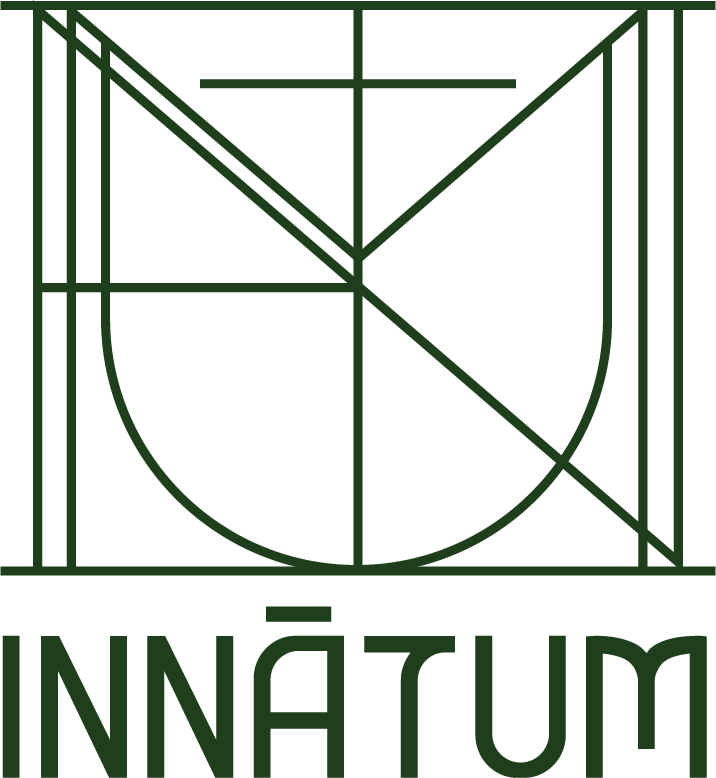Since the beginning, INNĀTUM has been guided by a relentless commitment to science, quality, and transparency.
Our partnerships with leading researchers and institutions drive our mission to create products that support holistic wellness and balance.
Science Meets Simplicity
At INNĀTUM, we ground everything we do in science.
Our formulas are crafted with precision, using rigorously researched ingredients that work in synchronicity with your being's systems.
With our intuitive subscription service, you’ll always have what you need, when you need it, without lifting a finger.
We strip away the unnecessary, focusing only on what’s proven to support your health effectively and sustainably.
Supporting the Whole You
Wellness is more than supplements—it’s the way you live.
At INNĀTUM, we believe that your health thrives when your environment, routines, and mindset work in harmony.
That’s why we’re committed to creating lifestyle products that complement our supplements, helping you build a complete, supportive wellness routine.
From the way you start your day to the spaces you create, we’re here to help you live fully and intentionally.
The 13 Human Systems
1. Respiratory System
• Function:
• Responsible for gas exchange, primarily oxygen intake and carbon dioxide elimination.
• Key organs include the lungs, trachea, bronchi, and diaphragm.
• Importance:
• Supplies oxygen to tissues, crucial for cellular respiration and energy production.
• Removes metabolic waste (CO₂), maintaining pH balance in the blood.
• Common Challenges:
• Exposure to pollutants, allergens, and smoking can impair lung function.
• Chronic issues like asthma, COPD, or respiratory infections.
• Nutritional Support:
• Antioxidants: Vitamin C and E to combat oxidative stress.
• Omega-3 Fatty Acids: Reduces inflammation in lung tissue.
• Herbs: Eucalyptus and peppermint improve airway function.
2. Digestive System
• Function:
• Breaks down food into nutrients for absorption and energy production.
• Includes the stomach, intestines, liver, pancreas, and gallbladder.
• Importance:
• The primary interface between external nutrients and the body.
• Supports immune function (70% of the immune system resides in the gut).
• Common Challenges:
• Imbalances like IBS, GERD, or leaky gut.
• Poor nutrient absorption due to insufficient enzyme production.
• Nutritional Support:
• Probiotics/Prebiotics: Promote gut microbiome diversity.
• Fiber: Enhances digestion and prevents constipation.
• Digestive Enzymes: Support nutrient breakdown and absorption.
3. Circulatory System
• Function:
• Distributes oxygen, nutrients, hormones, and waste throughout the body.
• Includes the heart, blood vessels, and blood.
• Importance:
• Vital for maintaining blood pressure, oxygen delivery, and metabolic waste removal.
• Common Challenges:
• Hypertension, atherosclerosis, or poor circulation.
• Increased risk of stroke and heart disease.
• Nutritional Support:
• Coenzyme Q10 (CoQ10): Supports heart function.
• Magnesium and Potassium: Regulate blood pressure.
• Polyphenols: Found in berries, support vascular health.
4. Urinary System
• Function:
• Filters and removes waste products from the blood through urine.
• Includes the kidneys, bladder, ureters, and urethra.
• Importance:
• Maintains fluid and electrolyte balance.
• Regulates blood pressure via kidney-mediated mechanisms.
• Common Challenges:
• UTIs, kidney stones, or chronic kidney disease.
• Nutritional Support:
• Cranberry Extract: Prevents bacterial adhesion in UTIs.
• Potassium-Rich Foods: Balances electrolytes.
• Hydration: Essential for kidney health.
5. Integumentary System
• Function:
• Protects the body from external harm and regulates temperature.
• Includes the skin, hair, nails, and glands.
• Importance:
• Acts as the first line of defense against pathogens.
• Supports vitamin D synthesis.
• Common Challenges:
• Skin disorders like eczema, psoriasis, or acne.
• Premature aging due to oxidative stress.
• Nutritional Support:
• Collagen Peptides: Support skin elasticity and repair.
• Zinc and Vitamin A: Promote wound healing and skin health.
• Biotin: Essential for healthy hair and nails.
6. Skeletal System
• Function:
• Provides structure, protects organs, and enables movement.
• Includes bones, cartilage, and ligaments.
• Importance:
• Stores essential minerals like calcium and phosphorus.
• Produces blood cells in the bone marrow.
• Common Challenges:
• Osteoporosis, arthritis, or fractures.
• Nutritional Support:
• Calcium and Vitamin D: Strengthen bone density.
• Vitamin K2: Ensures calcium is deposited in bones, not arteries.
• Magnesium: Enhances bone mineralization.
7. Muscular System
• Function:
• Enables movement, posture, and heat generation.
• Includes skeletal, smooth, and cardiac muscles.
• Importance:
• Facilitates voluntary and involuntary actions (e.g., heartbeat, digestion).
• Common Challenges:
• Muscle atrophy, cramps, or chronic pain.
• Nutritional Support:
• Protein: Supplies amino acids for muscle repair.
• Creatine: Boosts strength and performance.
• Electrolytes: Prevents cramps and enhances contraction efficiency.
8. Endocrine System
• Function:
• Regulates hormones controlling growth, metabolism, and reproduction.
• Includes glands like the thyroid, pancreas, and adrenal glands.
• Importance:
• Maintains homeostasis by coordinating bodily functions.
• Common Challenges:
• Hormonal imbalances like hypothyroidism or diabetes.
• Nutritional Support:
• Adaptogens (Ashwagandha): Regulate stress hormones.
• Iodine and Selenium: Essential for thyroid health.
• Chromium: Balances blood sugar levels.
9. Lymphatic System
• Function:
• Drains excess fluid, removes waste, and aids immune defense.
• Includes lymph nodes, vessels, and spleen.
• Importance:
• Facilitates detoxification and prevents edema.
• Common Challenges:
• Swollen lymph nodes, lymphedema, or poor circulation.
• Nutritional Support:
• Elderberry: Supports lymphatic drainage.
• Green Tea: Promotes detoxification.
• Vitamin C: Enhances immune function.
10. Nervous System
• Function:
• Controls and coordinates bodily activities.
• Includes the brain, spinal cord, and peripheral nerves.
• Importance:
• Responsible for cognition, sensation, and movement.
• Common Challenges:
• Neurodegenerative diseases, anxiety, or cognitive decline.
• Nutritional Support:
• Omega-3 Fatty Acids: Essential for brain health.
• B Vitamins: Support nerve function.
• L-Theanine: Reduces stress and improves focus.
11. Reproductive System
• Function:
• Enables reproduction and regulates sex hormones.
• Includes the ovaries, testes, and associated organs.
• Importance:
• Supports fertility, hormonal health, and overall vitality.
• Common Challenges:
• PCOS, infertility, or hormonal imbalances.
• Nutritional Support:
• Zinc and Selenium: Enhance fertility and hormone production.
• Maca Root: Boosts libido and energy.
• Vitamin E: Supports reproductive health.
12. Haematopoietic System
• Function:
• Responsible for blood production and regulation.
• Includes bone marrow, spleen, and blood cells.
• Importance:
• Ensures oxygen transport, immune defense, and clotting.
• Common Challenges:
• Anemia, clotting disorders, or leukemia.
• Nutritional Support:
• Iron and Vitamin B12: Essential for red blood cell production.
• Folate: Prevents anemia and supports DNA synthesis.
• Copper: Assists in iron absorption.
13. Immune System
• Function:
• Defends the body against pathogens and abnormal cells.
• Includes lymph nodes, white blood cells, and the thymus.
• Importance:
• Protects against infections and chronic diseases.
• Common Challenges:
• Autoimmune disorders or weakened immunity.
• Nutritional Support:
• Vitamin D: Boosts immune response.
• Zinc and Vitamin C: Enhance pathogen defense.
• Echinacea: Supports immune activation.

